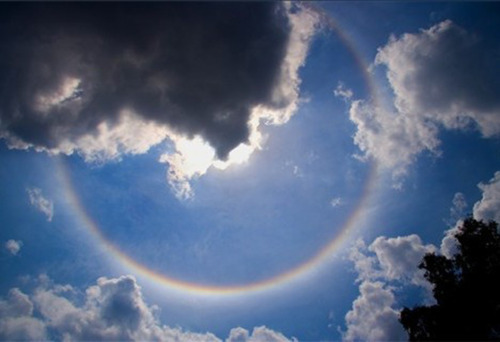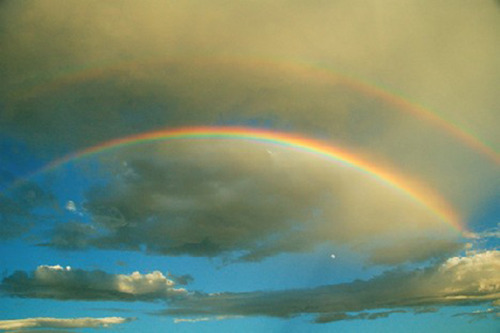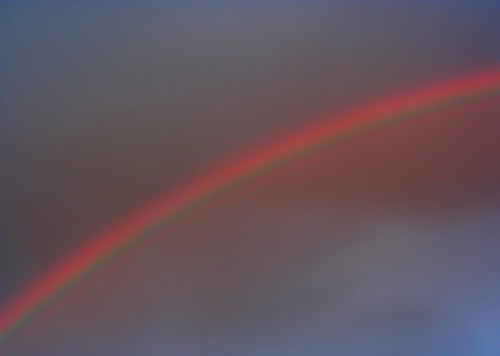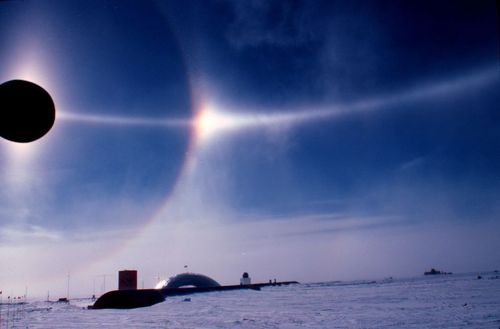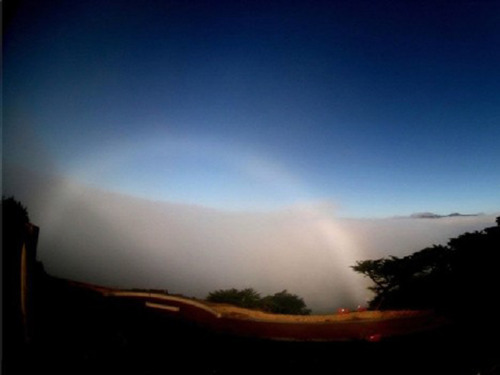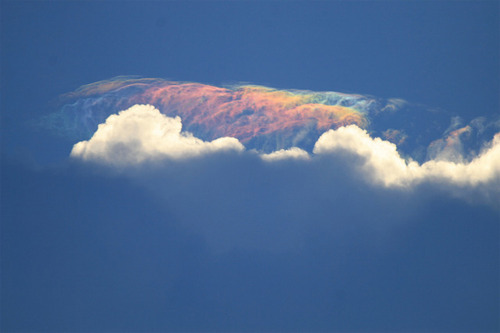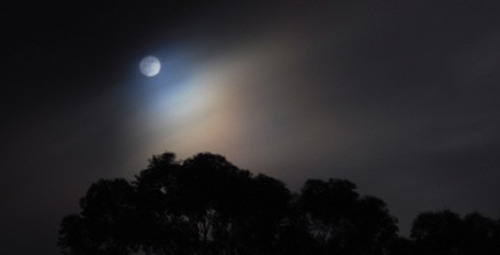♲ Um pouquim da net
7 tipos raros de arco-íris
7 tipos raros de arco-íris: aitiachica:
7 Rare Rainbow Formations
Circular rainbows: Most of the rainbows we see are actually arcs of perfect circles (with, accordingly, radii of exactly 42 degrees).
Secondary rainbows: Primary rainbows are often accompanied by secondary rainbows that are usually thinner and dimmer than the main rainbow. They display the spectrum in reverse order from that of a primary rainbow.
Red rainbows: Red rainbows are usually seen at sunrise or sunset when the thickness of the earth’s atmosphere filters out blue light leaving more red or orange light for water droplets to reflect and refract.
Sundog: Sundogs are not rainbows per se, but share many of their visible attributes. Sundogs are created when sunlight shines through ice crystals high in the atmosphere.
Fogbow: Fogbows are much rarer than rainbows because certain narrow parameters must align to create them. For one, the light source must be behind the observer and low to the ground. Also, any fog to the rear of the observer must be very thin so that sunlight can shine through to the thicker fog in front.
Fire rainbows: Fire rainbows are not true rainbows. The phenomenon (called a “circumhorizontal arc”) can only be viewed under certain precise conditions: the cirrus clouds that act as prisms must be at least 20,000 feet high and the sun must strike them when it is at an elevation of 58 to 68 degrees.
Moonbow: Moonbows are much more difficult to witness due to the requirement of a passing rainstorm and, ideally, a bright full moon unblocked by clouds.
Fire Rainbows are the most metal of all atmospheric prismatic phenomena.
